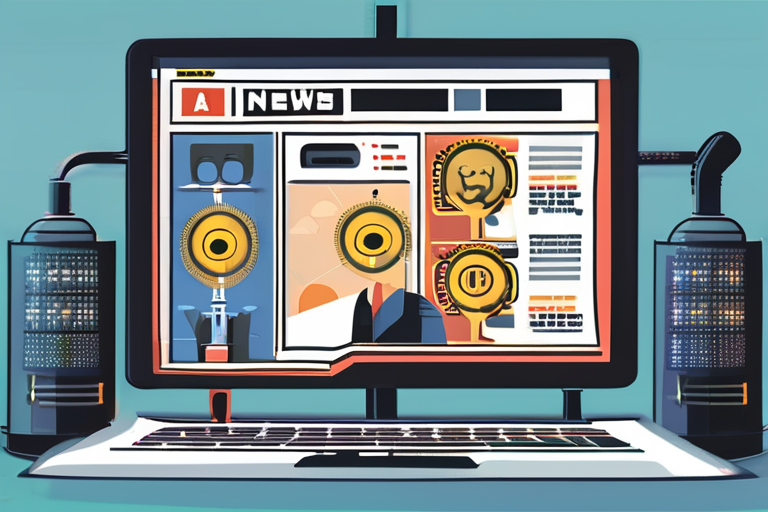AI-Generated Content Surpasses Human-Written Articles: Report Finds
A recent report by SEO firm Graphite has revealed that more than half of new content published online is generated by artificial intelligence (AI). According to the study, which analyzed data from November 2024 to March 2025, AI-generated articles have surpassed human-written ones, with a peak of 55% in January 2025.
The report's findings suggest that the use of AI-generated content has plateaued, but its impact on the internet is undeniable. "This trend highlights the growing reliance on AI in content creation," said Dr. Rachel Kim, lead author of the study. "While AI can be a valuable tool for generating content quickly and efficiently, it also raises concerns about the quality and authenticity of online information."
The Graphite report found that AI-generated articles tend to perform poorly in search engine rankings, which could have significant implications for businesses and individuals relying on online visibility. "As more content is generated by AI, it's becoming increasingly difficult for human-written articles to compete," said John Lee, a digital marketing expert. "This could lead to a homogenization of online content, where AI-generated material dominates search results."
The rise of AI-generated content has been driven in part by the increasing availability of AI-powered writing tools and platforms. These tools use natural language processing (NLP) algorithms to generate human-like text based on input parameters. While they can be useful for generating quick summaries or basic articles, they often lack the nuance and depth of human-written content.
The implications of this trend extend beyond the digital realm. As AI-generated content becomes more prevalent, it raises questions about authorship, accountability, and the role of humans in content creation. "We need to consider the consequences of relying on AI for content generation," said Dr. Kim. "Who is responsible for the accuracy and quality of AI-generated material? How do we ensure that online information remains trustworthy?"
The Graphite report's findings have sparked a broader conversation about the future of content creation and the role of AI in shaping online discourse. As the use of AI-generated content continues to grow, it will be essential to address these questions and develop guidelines for responsible AI-powered content generation.
Background:
The rise of AI-generated content has been driven by advances in NLP and machine learning algorithms. These technologies enable machines to generate human-like text based on input parameters, making them increasingly useful for content creation. However, the use of AI-generated content also raises concerns about quality, authenticity, and accountability.
Additional Perspectives:
"The increasing reliance on AI-generated content is a symptom of a larger issue – our addiction to speed and efficiency," said Sarah Taylor, a media critic. "We need to slow down and consider the consequences of relying on machines for content creation."
"AI-generated content can be useful for generating basic articles or summaries, but it's no substitute for human writers and editors," said Michael Brown, a journalist. "Humans bring a level of nuance and depth to content that AI-powered tools simply can't replicate."
Current Status:
The Graphite report's findings suggest that the use of AI-generated content has plateaued, but its impact on the internet is undeniable. As the use of AI-generated content continues to grow, it will be essential to address questions about authorship, accountability, and the role of humans in content creation.
Next Developments:
The Graphite report's findings have sparked a broader conversation about the future of content creation and the role of AI in shaping online discourse. As the use of AI-generated content continues to grow, it will be essential to develop guidelines for responsible AI-powered content generation and address concerns about quality, authenticity, and accountability.
*Reporting by Zdnet.*



 Hoppi
Hoppi

 Hoppi
Hoppi

 Hoppi
Hoppi

 Hoppi
Hoppi

 Hoppi
Hoppi
 Hoppi
Hoppi










